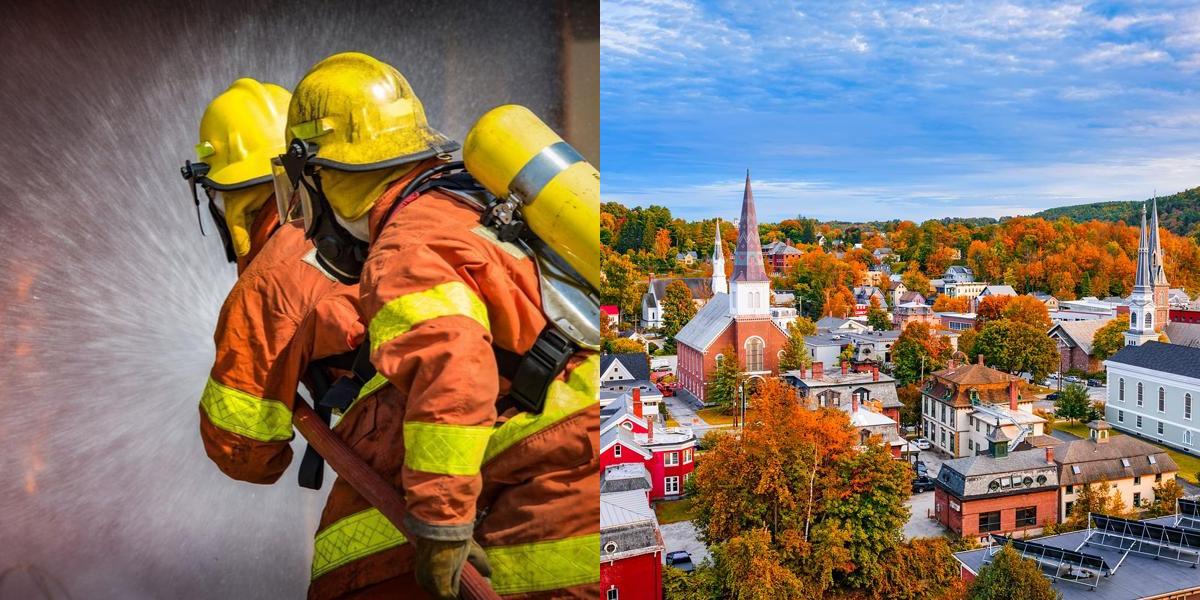How to Become a Firefighter in Vermont

Becoming a firefighter is a noble and rewarding career choice. Firefighters play a crucial role in protecting lives and property by responding to various emergencies, including fires, medical incidents, and natural disasters. If you have a passion for helping others and are physically and mentally prepared for the challenges, becoming a firefighter in Vermont might be the right path for you. Here's what you need to know:
How do I get a job as a Firefighter?
Once you have obtained your firefighter certification, the next step is to find a job as a firefighter. The process of finding a job can vary depending on the location and the specific requirements of the fire department.
One of the best ways to find job openings is to check the websites of local fire departments. Many fire departments post job openings on their websites, along with information about the application process and requirements.
Another option is to reach out to local fire departments directly. You can call or visit the fire department to inquire about job openings and ask about their hiring process. Networking is also important in the firefighting industry, so it may be helpful to attend fire department open houses or community events to meet and connect with firefighters.
In addition to checking with local fire departments, you may also want to consider joining a firefighter association or union. These organizations often have resources and connections that can help you find job opportunities. They may also provide additional training and support to help you advance your career.
When applying for firefighter positions, it is important to carefully review the job requirements and make sure you meet all of the qualifications. In addition to your firefighter certification, many departments require candidates to be at least 18 years old, have a valid driver's license, and pass a background check and medical examination.
The hiring process for firefighters typically includes multiple steps, including a written exam, a physical fitness test, and an interview. It is important to prepare for each step of the process and to highlight your relevant skills and experiences.
Career Paths and Opportunities after Becoming a Firefighter
Becoming a firefighter opens up a wide range of career opportunities and paths for advancement. While many firefighters choose to work in a traditional firefighting role, there are also opportunities to specialize in specific areas or work in related fields.
One common career path for firefighters is to advance through the ranks within the fire department. This may involve taking on supervisory or management roles, such as fire captain or fire chief. These positions often come with increased responsibilities and higher pay.
Another option is to specialize in a specific area of firefighting, such as hazardous materials response, technical rescue, or fire investigation. These specialties often require additional training and certification, but they can provide opportunities for advancement and increased job satisfaction.
Some firefighters choose to transition into related fields, such as emergency medical services (EMS) or fire prevention. Many fire departments provide EMS services, and firefighters may be trained as emergency medical technicians (EMTs) or paramedics. This allows them to provide medical care in addition to responding to fires and other emergencies.
Fire prevention is another area where firefighters can apply their skills and knowledge. Fire prevention specialists work to educate the public about fire safety, inspect buildings for fire code compliance, and investigate the causes of fires. This work plays a crucial role in preventing fires and reducing the risk to the community.
In addition to these career paths, there are also opportunities for firefighters to become instructors, consultants, or work in private industry. Firefighters often have valuable skills and experiences that can be applied in a variety of settings.
How Much does a Firefighter Make?
The salary of a firefighter can vary based on factors such as location, experience, and the size of the fire department. According to the Bureau of Labor Statistics, the median annual wage for firefighters was $50,850 in May 2020. The lowest 10 percent earned less than $25,850, while the highest 10 percent earned more than $94,720.
For entry-level firefighters, the starting salary can be lower than the median wage. However, as they gain experience and move up the ranks, their salary can increase significantly. It's important to note that these figures are just averages, and the actual salary can vary depending on various factors.
Final Thoughts
Becoming a firefighter is a challenging and rewarding career choice. It requires dedication, physical fitness, and the ability to remain calm in high-pressure situations. By obtaining your firefighter certification and pursuing opportunities for career advancement, you can build a successful and fulfilling career in the fire service.
If you are interested in becoming a firefighter, it is important to research the specific requirements and certification programs in your area. Reach out to local fire departments, join firefighter associations, and network with others in the industry to increase your chances of finding job opportunities.
Remember, the path to becoming a firefighter may not be easy, but the rewards are well worth it. As a firefighter, you will have the opportunity to make a difference in your community, help others in need, and work as part of a dedicated and close-knit team.
Thinking about a potential career transition? Dreambound has detailed guides to help you with making informed decisions.





